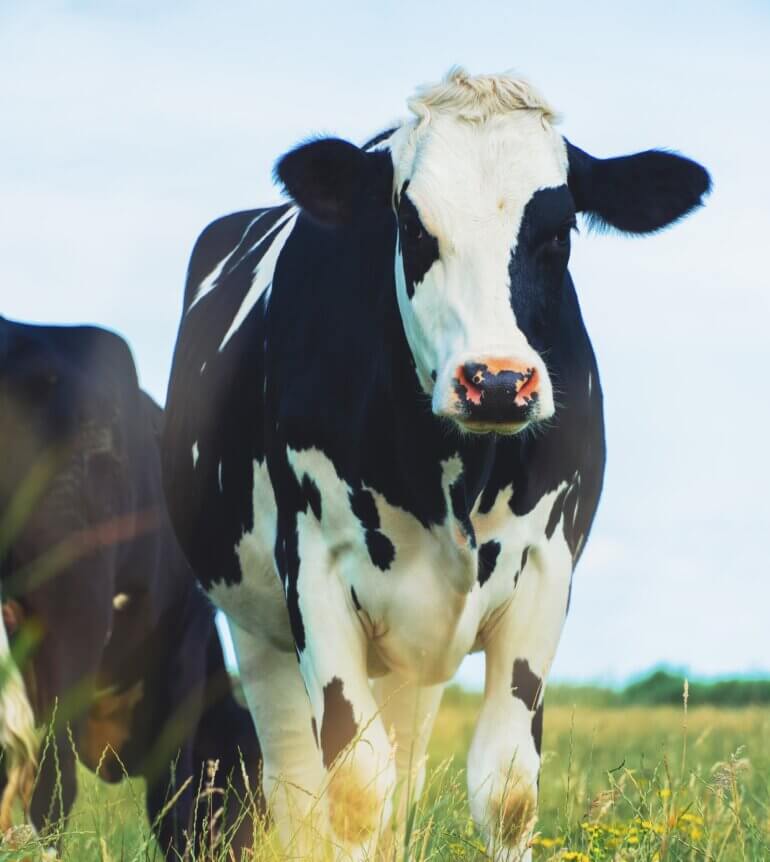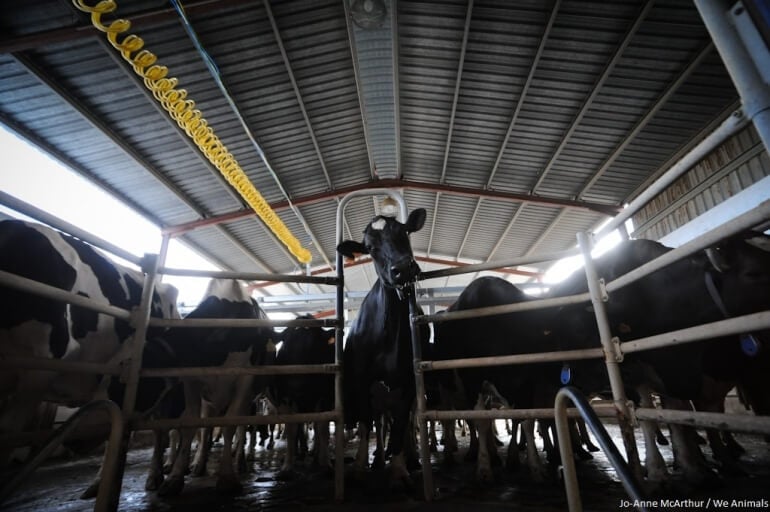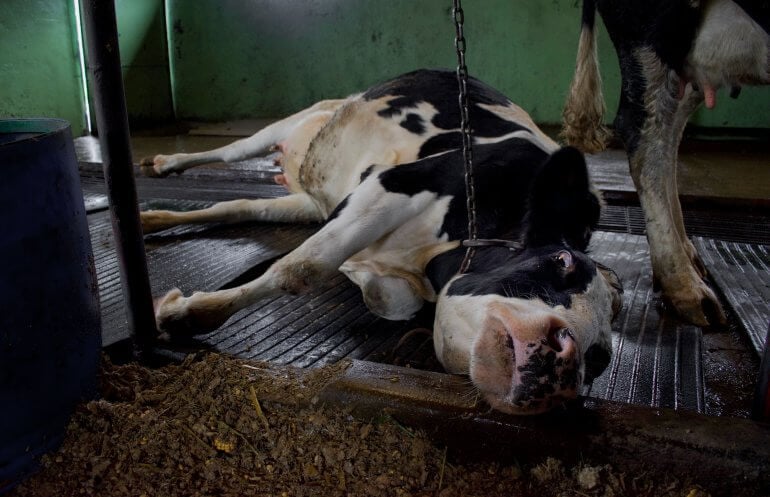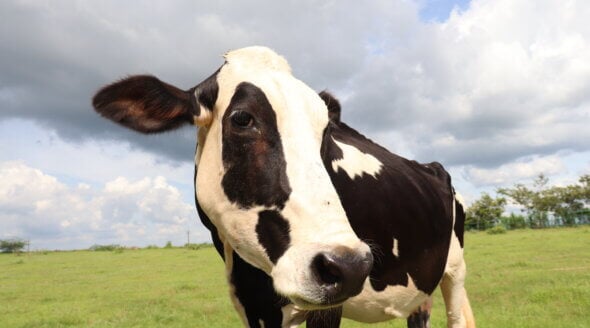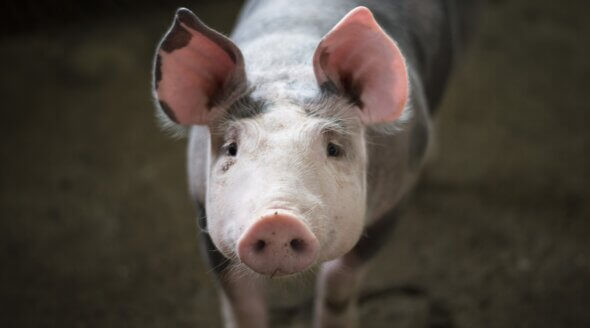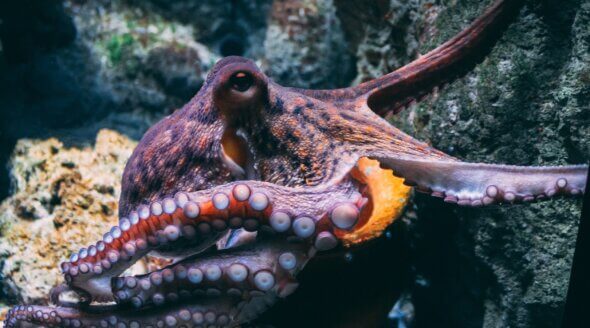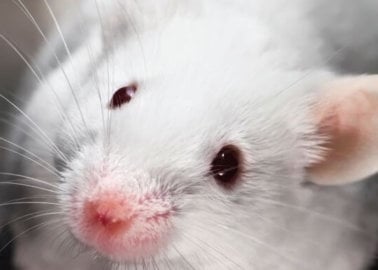Great News for Cows: Plans for Europe’s Largest Dairy Farm Blocked
Great news! Plans for Europe’s largest dairy farm have been blocked, thanks to a new law in Spain that prevents farms from keeping more than 850 cows, stopping plans for new farms over that size that have not yet begun construction.
If the plans for a megafarm in Noviercas, Spain, had gone ahead, 23,000 cows and their calves – more than the human capacity of London’s O2 arena – would have been kept in filthy, cramped conditions so that the owners could exploit their bodies for profit before sending them to slaughter.
No animal should be kept prisoner on a farm. Even though the new law limits the number of individuals in filthy, crowded sheds, animals confined on dairy farms will still suffer. The best way to help them is to go vegan.
We’re grateful to the 65,000 PETA entity supporters who used their voice to call for these plans to be scrapped as well as to the Spanish organisation Asociación Hacendera and residents of the province of Soria for joining us in opposing these horrific plans.
The Misery Behind Megafarms
Did you know that cows only produce milk for their babies? Dairy farms treat these gentle mothers as milk machines. To ensure they continuously lactate, they are forcibly impregnated again and again until their bodies are worn out. Their calves are taken away from them within 36 hours of birth, causing grief and anguish to both mother and baby. Mother cows often bellow for their young for several days afterwards. Tragically, their daughters are destined to endure the same fate – a relentless cycle of forced impregnation, birth, and loss – while their sons may be shot or shipped abroad for the horrific veal industry.
Mother cows are bred to produce high volumes of milk, and as a result, they suffer from painful udder inflammation, or mastitis, which leads to higher levels of pus and bacteria in their milk. Due to their heavy udders and repeatedly being impregnated and giving birth, their bodies waste away, and many of them experience painful lameness. They’re forced to wear shackles on their hind legs to stop them from collapsing so that farmers can get every last drop of milk from their exhausted bodies.
Once they’re no longer producing high volumes of milk, they’re sent to the abattoir and killed.
See the Individual
Cows have unique personalities, just like we do. They form friendships and even hold grudges against one another. They’re very smart – they can remember the faces of a hundred other cows.
They’re clean and love being groomed and caring for their young. But on this farm, they would have been filthy, frightened, and in pain.
Catastrophic Environmental Consequences
Animal agriculture is a leading cause of the climate catastrophe, and building new farms – especially of this size – would have a devastating impact on the environment. Cows release huge volumes of methane, a greenhouse gas 30 times more potent than carbon dioxide at trapping heat in the atmosphere, which massively contributes to global heating.
This farm would have destroyed nearby water sources by contaminating them with filthy farm run-off. Spain was recently taken to court by the EU because of the amount of farmed animal waste being leaked into the soil, causing the legal limit for soil nitrates to be exceeded. The main reason that thousands of dead fish washed up on Spain’s south-eastern coastline in 2021 has been proven to be run-off from intensive farming, causing the collapse of aquatic ecosystems due to a lack of oxygen in the water.
Mad Cow Disease Hazards
Mad cow disease – which originated from filthy, intensive farming – is still a threat today. This farm would have been a breeding ground for disease and could have led to a catastrophic epidemic similar to that of the 1990s, in which over 4 million cows were slaughtered and 178 people died. We must learn from this and the spread of other zoonotic diseases, such as COVID-19, and prevent any more animal farms from being built.
Help Animals on Farms
These proposals would not be put forth without demand from the public for cows’ milk, so the best way to help stop future proposals is to go vegan.
We’ll continue to speak out against animal farms such as this one. If you want to add your name to our future petitions, subscribe to PETA News to be the first to hear of them. If you hear about plans for a new factory farm in your area, please alert us by contacting [email protected] as soon as you can.
Plans are still underway for the world’s first octopus farm. Help us block this farm, too:

